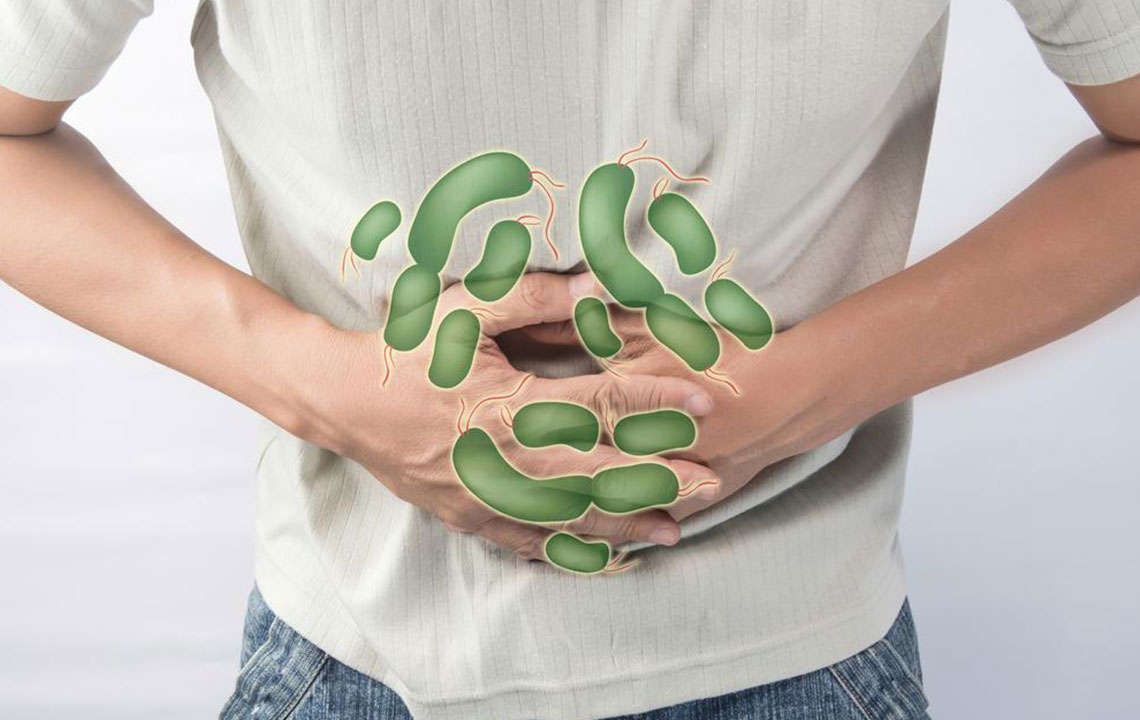Comprehensive Guide to the Top 5 Gastric Disorders Every Individual Should Know
This comprehensive guide explores the top five common gastric disorders, including GERD, gastritis, peptic ulcers, viral gastroenteritis, and hiatal hernia. Understanding these conditions, their symptoms, causes, and treatment options can help individuals seek timely medical advice and improve their digestive health. The article emphasizes lifestyle modifications, diagnostic procedures, and medical interventions that are essential for managing these widespread gastrointestinal issues effectively.

Gastrointestinal health plays a vital role in overall wellbeing, and any disruptions or discomfort in the stomach area can lead to significant impacts on daily life. Recognizing the signs, symptoms, and causes of common gastric disorders is crucial for early detection and effective management. With millions of people worldwide affected by various stomach-related ailments, understanding these conditions can empower individuals to seek timely medical assistance and adopt healthier lifestyle choices. Below, we explore the five most common gastric disorders, their symptoms, causes, and treatment options.
Gastroesophageal Reflux Disease (GERD): An Overview
Gastroesophageal Reflux Disease, commonly known as GERD, is a chronic digestive disorder that affects many individuals globally. It is characterized by the frequent reflux of stomach acids into the esophagus, leading to persistent symptoms and potential complications over time.
Symptoms of GERD often include a burning sensation in the chest known as heartburn, sour or bitter taste in the mouth, difficulty swallowing, and regurgitation of food or sour liquid. In severe cases, GERD can also cause throat inflammation, voice hoarseness, and a chronic cough. It's estimated that more than 20% of adults in Western countries experience symptoms of GERD weekly.
The primary cause of GERD involves a malfunction of the lower esophageal sphincter (LES), the muscle responsible for closing the stomach from the esophagus. Factors like obesity, hiatal hernia, pregnancy, smoking, and certain medications can weaken the LES, leading to increased reflux.
While over-the-counter antacids and lifestyle modifications—such as weight management, dietary changes, and avoiding lying down after meals—may alleviate mild symptoms, persistent or severe cases should be evaluated by healthcare professionals. Diagnostic tests like endoscopy or pH monitoring may be necessary to assess the extent of reflux and prevent complications like esophageal ulcers or Barrett’s esophagus.
Effective management of GERD involves a combination of lifestyle adjustments and, in some cases, prescription medications, including proton pump inhibitors (PPIs) or H2 receptor blockers. In refractory cases, surgical interventions such as fundoplication may be recommended.
Gastritis: Understanding Inflammation of the Stomach
Gastritis refers to inflammation of the stomach lining, which can occur suddenly (acute) or develop gradually over time (chronic). This condition can be triggered by various factors, including stress, excessive alcohol consumption, bacterial infections like Helicobacter pylori, prolonged use of non-steroidal anti-inflammatory drugs (NSAIDs), or bile reflux.
Symptoms of gastritis can range from mild discomfort to severe pain. Common signs include nausea, vomiting, bloating, loss of appetite, and sometimes bleeding, which may present as dark or black stool. Chronic gastritis might go unnoticed in the early stages but can eventually lead to ulceration or even increase the risk of gastric cancer if left untreated.
Diagnosis often involves endoscopy and biopsy to assess inflammation and identify underlying causes. Managing gastritis typically includes eliminating causative factors—such as quitting NSAIDs or alcohol—and using medications like proton pump inhibitors or antacids to reduce stomach acid and promote healing.
Dietary modifications, such as avoiding spicy, acidic, or greasy foods, can significantly improve symptoms. Stress management and lifestyle changes also play a vital role in controlling gastritis and preventing future episodes.
Peptic Ulcers: Causes, Symptoms, and Treatment
Peptic ulcers are open sores that develop on the inner lining of the stomach (gastric ulcer) or the upper part of the small intestine (duodenal ulcer). They are primarily caused by an imbalance between stomach acid and the protective mechanisms of the stomach lining.
Infection with Helicobacter pylori bacteria and prolonged use of NSAIDs are the most common causes. Symptoms include burning stomach pain, bloating, nausea, vomiting, and in severe cases, weight loss and fatigue. If an ulcer perforates or bleeds, it can cause life-threatening complications requiring immediate medical intervention.
Diagnosis involves gastroscopy, breath tests for H. pylori, or stool tests. Treatment typically involves a combination of antibiotics to eradicate H. pylori (if present), PPIs to reduce acid production, and lifestyle modifications such as avoiding spicy foods and NSAIDs. In some cases, surgery may be necessary for complications like perforation or persistent bleeding.
Preventative measures include timely treatment of H. pylori infection and avoiding unnecessary use of NSAIDs, alongside dietary and lifestyle adjustments to maintain digestive health.
Viral Gastroenteritis: The Role of Infections in the Gut
Viral gastroenteritis, often called the stomach flu, is an infection caused by various viruses, including norovirus and rotavirus. It inflames both the stomach and intestines, leading to symptoms that range from mild to severe.
Common signs include watery diarrhea, vomiting, abdominal cramps, fever, headache, and dehydration. The infection spreads easily through contaminated food, water, or contact with infected individuals. Vulnerable populations like children, the elderly, and immunocompromised individuals are at higher risk of severe dehydration.
Diagnosis is primarily clinical, based on symptoms and recent exposure history. Treatment focuses on hydration and electrolyte replacement, with most viral infections resolving within a few days. Severe cases may require hospitalization, especially if dehydration becomes critical.
Preventative measures include proper hand hygiene, safe food handling, and vaccination against rotavirus in children. Maintaining good sanitation practices is essential in controlling outbreaks of viral gastroenteritis.
While antibiotics are ineffective against viruses, supportive care remains the cornerstone of treatment, ensuring recovery without complications.
Hiatal Hernia: When the Stomach Pushes Through the Diaphragm
A hiatal hernia occurs when part of the stomach protrudes through an opening in the diaphragm known as the hiatus. This condition can disrupt normal digestive function and lead to symptoms resembling GERD or cause unique discomforts.
Symptoms often include frequent belching, bloating, chest pain, heartburn, and sometimes a bitter or sour taste in the mouth due to acid reflux. In severe cases, the blood flow to the herniated portion of the stomach may be compromised, requiring emergency treatment.
The exact cause of hiatal hernia remains unclear, but factors such as aging, obesity, pregnancy, or trauma can weaken the diaphragm muscles, facilitating hernia formation. Symptoms may be mild or absent in some individuals, but those experiencing persistent discomfort should seek medical evaluation.
Diagnosis typically involves imaging tests like barium swallow X-rays or endoscopy. Treatment options depend on severity; lifestyle modifications like weight loss, eating smaller meals, and avoiding lying down after eating can alleviate symptoms. In severe or complicated cases, surgical repair may be necessary to reposition the stomach and reinforce the diaphragm.
Management strategies focus on controlling symptoms and preventing complications, ensuring quality of life for affected individuals.
Comprehending these common gastric disorders and their symptoms can lead to early intervention, better management, and improved digestive health. If you experience ongoing or severe stomach issues, consulting a healthcare professional is essential to determine the correct diagnosis and treatment plan.





